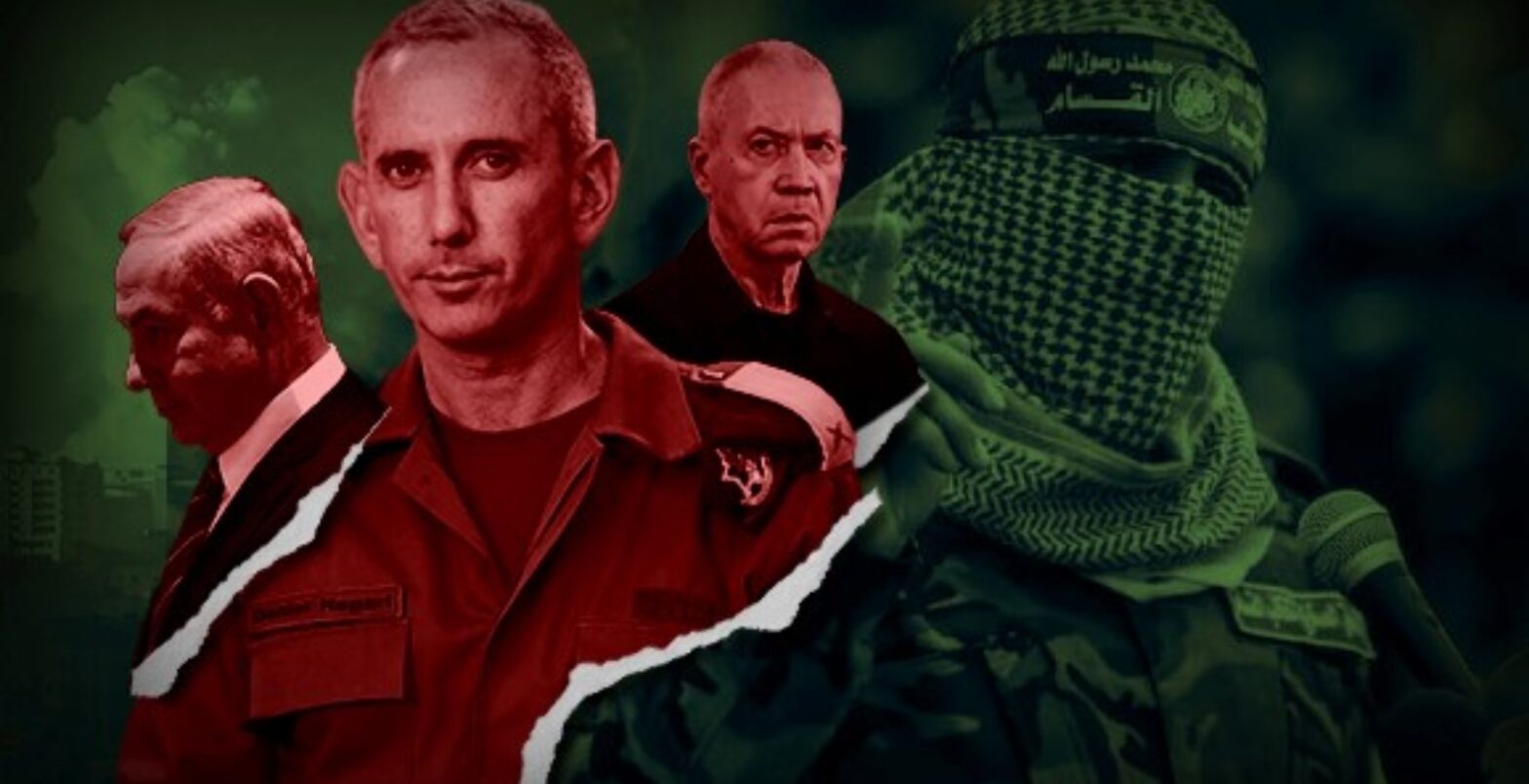Doha, January 2024 // The Arab Center for Research and Policy Studies announced the results of their public opinion poll regarding the Israeli war on Gaza on Wednesday 10 January 2024. The poll was carried out on a sample of 8000 respondents (men and women) from 16 Arab countries. The survey questions were selected to determine the opinions of citizens in the Arab region on important topics related to the Israeli war on Gaza.

The results of the survey demonstrate the locality of the war as felt by Arab public opinion, with 97% of respondents expressing psychological stress (to varying degrees) as a result of the war on Gaza. 84% expressed a sense of great psychological stress.
Extent of psychological stress felt during the war on Gaza
About 80% of respondents reported that they regularly follow news of the war, compared to 7% who said that they do not follow it, a further indication that the Arab public sees this war as a local event. To access the news 54% of respondents relied on television, compared to 43% who relied on the internet.
Extent of news followship about Israel’s war on Gaza
It is noteworthy that the results highlighted that Arab public opinion does not believe that the military operation carried out by Hamas on 7 October 2023 was in pursuit of a foreign agenda. 35% of respondents considered that the most important reason for the operation was the continued Israeli occupation of the Palestinian territories, while 24% attributed it mostly to defence against Israel’s targeting of Al-Aqsa Mosque, and 8% saw it as a result of the ongoing siege of the Gaza Strip.
The most important motivations for Hamas to carry out the military operation on 7 October 2023
| Most important | Second most important | |
| The ongoing Israeli occupation of Palestinian land | 35 | 13 |
| Defending al-Aqsa Mosque against attacks | 24 | 21 |
| The ongoing blockade of Gaza | 8 | 12 |
| Ongoing and expanding settlement on Palestinian land | 6 | 8 |
| Liberating Palestinian detainees and prisoners in Israeli prisons | 6 | 13 |
| Israel’s rejection of the establishment of a Palestinian state | 4 | 5 |
| The United States’ failure to achieve a just peace | 2 | 3 |
| The international community’s disregard for Palestinian rights and the ongoing occupation | 4 | 5 |
| Halting the normalization process between Arab governments and Israel | 2 | 3 |
| Carrying out the plan or agenda of a foreign power such as Iran | 2 | 2 |
| Other | 2 | 1 |
| Don’t know / Declined to answer | 5 | 0 |
| No second option | 0 | 14 |
| Total | 100 | 100 |
While 67% of respondents reported that the military operation carried out by Hamas was a legitimate resistance operation, 19% reported that it was a somewhat flawed but legitimate resistance operation, and 3% said that it was a legitimate resistance operation that involved heinous or criminal acts, while 5% said it was an illegitimate operation.
Assessments of Hamas’ military operation on 7 October 2023
The results showed that there is an Arab consensus of 92% expressing solidarity with the citizens of the Arab region with the Palestinian people in Gaza. While 69% of respondents expressed their solidarity with Palestinians and support for Hamas, 23% expressed solidarity with Palestinians despite opposing Hamas, and 1% expressed a lack of solidarity with the Palestinians.
Solidarity with Palestinians and support for Hamas
The majority of respondents rejected comparisons between Hamas and ISIS made by predominately Israeli and Western politicians and media personalities.
Comparisons between Hamas and ISIS
When asked about the responses of regional and international powers to Israel’s war on Gaza, 94% considered the US position negatively, with 82% considering it very bad. In the same context, 79%, 78%, and 75% of respondents viewed positions of France, the UK, and Germany negatively. Opinion was split over the positions of Iran, Turkey, Russia, and China. While (48%, 47%, 41%, 40%, respectively) considered them positively (37%, 40%, 42%, 38%, respectively).
Evaluation of international and regional positions
In the same context, 76% of respondents reported that their position toward the United States following the Israeli war on Gaza had become more negative, indicating that the Arab public has lost confidence in the US. Furthermore, respondents demonstrated a near consensus (81%) in their belief that the US government is not serious about working to establish a Palestinian state in the 1967 occupied territories (The West Bank, Jerusalem, and Gaza).
About 77% of respondents named the United States and Israel as the biggest threat to the security and stability of the region. While 51% saw the United States as the most threatening, 26% considered the biggest threat to be Israel. While 82% of respondents reported that US media coverage of the war was biased towards Israel, only 7% saw it as neutral.
How opinion on US policy in the Arab region has changed since the war on Gaza
Evaluation of US seriousness in establishing a Palestinian state in the 1967 Occupied Palestinian lands
Biggest threats to the peace and stability of the region
| Greatest Threat | Second Greatest Threat | |||||||
| Gaza war | 2022 | 2020 | 2018 | Gaza War | 2022 | 2020 | 2018 | |
| United States | 51 | 39 | 44 | 43 | 25 | 25 | 23 | 28 |
| Israel | 26 | 41 | 37 | 37 | 33 | 28 | 38 | 40 |
| Iran | 7 | 7 | 10 | 13 | 10 | 13 | 19 | 15 |
| Russia | 4 | 6 | 2 | 3 | 8 | 8 | 4 | 7 |
| France | 2 | 2 | 2 | 1 | 10 | 5 | 3 | 1 |
| Turkey | 2 | 2 | 2 | 1 | 3 | 2 | 5 | 2 |
| China | 1 | 2 | 1 | 0 | 2 | 2 | 2 | 0 |
| Other | 1 | — | — | — | 2 | — | — | — |
| Don’t know / Declined to answer | 6 | 1 | 2 | 2 | 0 | — | — | — |
| No second option | 0 | — | — | — | 7 | 17 | 6 | 7 |
| Aggregate | 100 | 100 | 100 | 100 | 100 | 100 | 100 | 100 |
Evaluation of US media coverage of the war on Gaza
Arab public opinion sees the Palestinian Cause as an Arab issue, and not exclusively a Palestinian issue. A consensus of 92% believe that the Palestinian question concerns all Arabs and not just the Palestinians. On the other hand, 6% said that it concerns the Palestinians alone and they alone must work to solve it. It is worth noting that this percentage is the highest recorded since polling began in 2011, rising from 76% at the end of 2022, to 92% this year. Some countries recorded significant increases. In Morocco, it rose from 59% in 2022 to 95%, in Egypt from 75% to 94%, in Sudan from 68% to 91%, and in Saudi Arabia from 69% to 95%, a statistically significant increase that represents a fundamental shift in the opinions of the citizens of these countries.
Consideration of the Palestinian Cause as an Arab issue over time
Arab public opinion is almost unanimous in rejecting recognition of Israel, at a rate of 89%, up from 84% in 2022, compared to only 4% who support its recognition. Of particular note is the increase in the percentage of those who rejected recognition of Israel in Saudi Arabia from 38% in the 2022 poll to 68% in this survey. Such a statistically significant increase also applies to other countries such as Morocco, where the percentage rose from 67% to 78%, and Sudan, where it increased from 72% to 81%.
Support/opposition for recognizing Israel over time
When asked about their opinions on what measures Arab governments should take in order to stop the war in Gaza, 36% of respondents stated that Arab governments should suspend all relations or normalization processes with Israel, while 14% of them stated that aid and support should be brought into Gaza without Israeli approval, and 11% said that the Arab governments should use oil as a weapon to assert pressure on Israel and its supporters.
Measures that should be taken by Arab governments to stop the war on Gaza
| Most important measure | Second most important measure | |
| Suspend relations or normalization with Israel | 36 | 15 |
| Deliver aid to Gaza without Israeli approval | 14 | 16 |
| Use the oil weapon to pressure Israel and its supporters | 11 | 13 |
| Establish a global alliance to boycott Israel | 9 | 11 |
| Provide military aid to Gaza | 8 | 10 |
| Announce military mobilization | 5 | 6 |
| Reconsider relations with the United States | 4 | 6 |
| Reconsider relations with states that support Israel’s war on Gaza | 3 | 5 |
| Build alliances with states that have taken practical steps against Israel | 3 | 4 |
| Other | 3 | 2 |
| Don’t know / Declined to answer | 4 | 0 |
| No second option | 0 | 12 |
| Total | 100 | 100 |
There is a near consensus among Palestinian respondents from the West Bank (including Jerusalem), around 95%, that safety and freedom of movement between the governorates and cities of the West Bank and their sense of security and personal safety have been affected negatively since 7 October 2023.
Negative effects experienced in the West Bank since 7 October 2023
A further 60% of Palestinian respondents in the West Bank said that they had been subjected to or were witnesses to raids by the occupation army forces, while 44% said that they were subjected to arrest or interrogation by the Israeli army, and 22% reported that they were subjected to harassment by settlers.
Frequency of witnessing or happening upon incidences of raids, arrests, or settler harassment in the West Bank since 7 October 2023
This survey is the first of its kind to gauge public opinion on the topic across the Arab region. The field work was conducted from 12 December 2023 to 5 January 2024 in Mauritania, Morocco, Algeria, Tunisia, Libya, Egypt, Sudan, Yemen, Oman, Qatar, Kuwait, Saudi Arabia, Iraq, Jordan, Lebanon, and the West Bank, Palestine (including Jerusalem). The surveyed communities represent 95% of the population of the Arab region and its far-flung regions. The sample in each of the aforementioned communities was 500 men and women, drawn according to cluster and self-weighted sampling methods to ensure that every individual in each country had an equal probability of appearing in the sample.
For the Silo, Dr Ahmed Hussein, researcher at the Arab Center for Research and Policy Studies.


Leave a Reply
You must be logged in to post a comment.